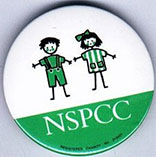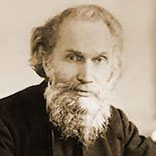 The National Society for the Prevention of Cruelty to Children (NSPCC) is a charity campaigning and working in child protection in England, Wales, Northern Ireland and the Channel Islands.
The National Society for the Prevention of Cruelty to Children (NSPCC) is a charity campaigning and working in child protection in England, Wales, Northern Ireland and the Channel Islands.
The NSPCC lobbies the government on issues relating to child welfare, and creates campaigns for the general public, with the intention of raising awareness of child protection issues. It also operates both a helpline on 0808 800 5000, for anyone concerned about a child, and ChildLine offering support to children themselves. Childline became a part of the NSPCC in 2006. In addition to the telephone helplines, NSPCC provides an online counseling service for children & young people at ChildLine.
The NSPCC runs local service centers across the UK where it tries to help children, young people and families. Since 2009, the NSPCC has run a Child Protection Consultancy service aiming to make organizations safer for children. This offers training and consultancy to organizations which have contact with children, ranging from schools to sporting bodies. The charity works through local safeguarding children’s boards (LSCBs), where the police, health, social and education services and others can work together.
History: On a trip to New York in 1881, Liverpool businessman Thomas Agnew (1834–1924) visited the New York Society for the Prevention of Cruelty to Children. He was  so impressed by the charity, that he returned to England determined to provide similar help for the children of Liverpool. In 1883 he set up the Liverpool Society for the Prevention of Cruelty to Children (LSPCC). Other towns and cities began to follow Liverpool’s example, leading in 1884 to the founding of the London Society for the Prevention of Cruelty to Children (London SPCC) by Lord Shaftesbury, Reverend Edward Rudolf and Reverend Benjamin Waugh. After five years of campaigning by the London SPCC, Parliament passed the first ever UK law to protect children from abuse and neglect in 1889. The London SPCC was renamed the National Society for the Prevention of Cruelty to Children in 1889, because by then it had branches across Great Britain and Ireland.
so impressed by the charity, that he returned to England determined to provide similar help for the children of Liverpool. In 1883 he set up the Liverpool Society for the Prevention of Cruelty to Children (LSPCC). Other towns and cities began to follow Liverpool’s example, leading in 1884 to the founding of the London Society for the Prevention of Cruelty to Children (London SPCC) by Lord Shaftesbury, Reverend Edward Rudolf and Reverend Benjamin Waugh. After five years of campaigning by the London SPCC, Parliament passed the first ever UK law to protect children from abuse and neglect in 1889. The London SPCC was renamed the National Society for the Prevention of Cruelty to Children in 1889, because by then it had branches across Great Britain and Ireland.
The NSPCC was granted its Royal Charter in 1895, when Queen Victoria became its first Royal Patron. It did not change its title to “Royal Society for the Prevention of Cruelty to Children” or similar, as the name NSPCC was already well established, and to avoid confusion with the Royal Society for the Prevention of Cruelty to Animals (RSPCA), which had already existed for more than fifty years. Today, the NSPCC works in England, Wales, Northern Ireland, and the Channel Islands. Children 1st – formerly the Royal Scottish Society for the Prevention of Cruelty to Children – is the NSPCC’s equivalent in Scotland. The NSPCC’s organisation in the Republic of Ireland was taken up by the Irish Society for the Prevention of Cruelty to Children (ISPCC), founded in 1956 as a replacement for the NSPCC. The NSPCC is the only UK charity which has been granted statutory powers under the Children Act 1989, allowing it to apply for care and supervision orders for children at risk. The charity is regularly audited and publishes its annual report and accounts as required by the Charity Commission.